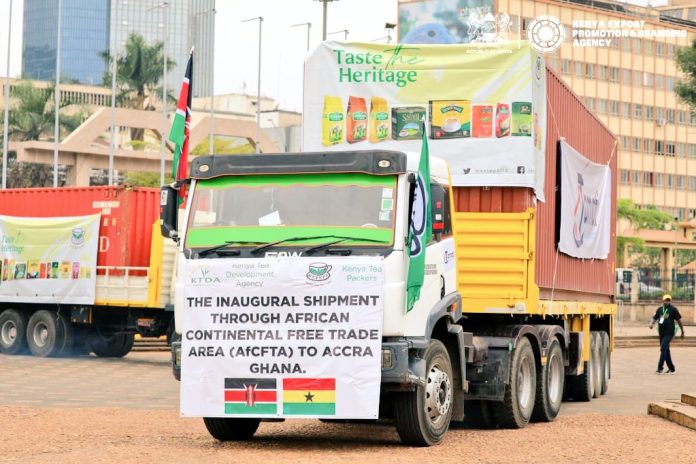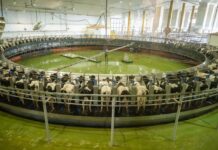Kenya has expanded its tea export market to West and Central African trading countries in order to capitalize on the region’s tea demand.
President William Ruto flagged off the first shipment to Accra, Ghana, under the African Continental Free Trade Agreement (AFCFTA) Guided Trade Initiative on Wednesday.
Speaking at the KICC, Ruto stated that it was past time for Kenya to capitalize on its high-quality tea and brand it.
“There is no reason why people in the African continent buy tea from other markets when we have our own very high quality tea that we can provide to them at the same price,” Ruto said.
“We must have a Kenyan branded product in tea. This is so that we can be selling our tea,” he added.
Ruto also stated that the government must increase the value added tea from 5% to 50% in the next five years.
Aside from Ghana, Ruto stated that Kenya will hold similar discussions with Tunisia, Morocco, and all other tea-importing countries.
He stated that he wanted to provide countries with the opportunity to drink the best tea in the world.
“I expect the relevant Ministry to initiate a conversation with Cameroon, Tunisia, Morocco and all other major tea importing countries in the African continent concerning the tea market. When we do business together we become even greater friends. I look forward to working with you,” Ruto said.
The AfCFTA partnership allows nations to trade outside of existing trade restrictions.
Kenya, one of six countries chosen to participate in the pilot phase of the AfCFTA Initiative on Guided Trade, shipped its first goods to Ghana in late June, as required by the AfCFTA agreement.
Tanzania, Ghana, Rwanda, Egypt, and Cameroon are the other five countries.
The six pilot countries must identify products that can enter their respective markets.
Through an Ad Hoc Committee formed to spearhead the initiative, Kenya has identified several products for this initiative.
Tea, Exide batteries, confectionery, leather bags, incinerators, beaded products, vehicular filters, textiles, sisal fibre, avocados, and fresh produce are among them.



















